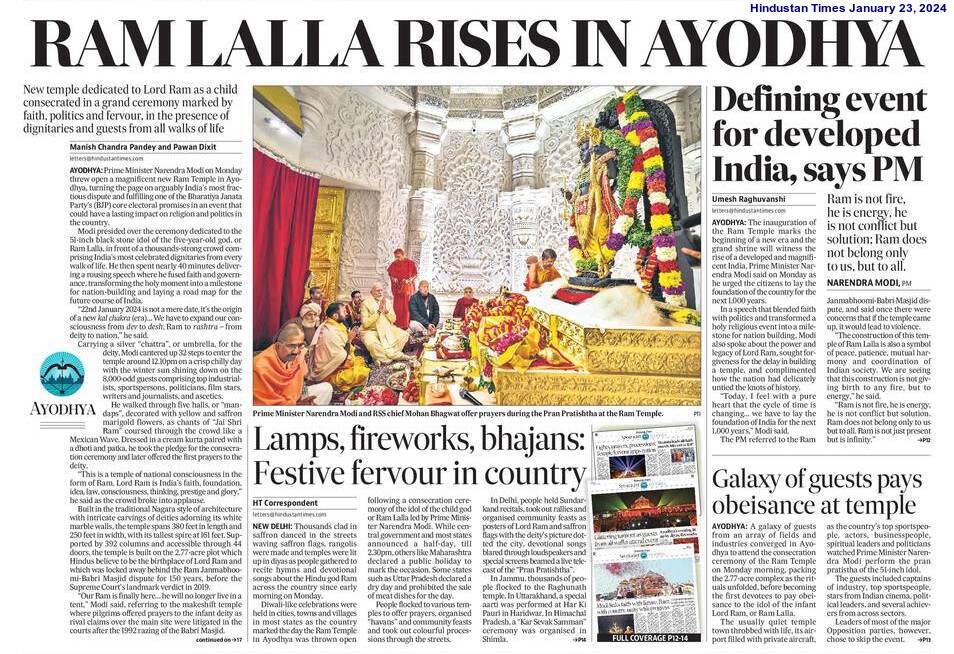India’s Post-Secular Renaissance
Rediscovering Cultural Identity & Values
India, a land known for its rich tapestry of cultures, religions and philosophies, is undergoing a profound transformation as it sheds the remnants of a secular narrative that dominated its political discourse for decades. The era of Nehruvian Secularism, which once dictated the South Asian nation’s narrative, is fading away, making room for a thorough exploration of India’s true essence – its ancient civilisation, diverse culture and potential leadership in the knowledge-oriented world.
At the heart of this transformation lies a critical re-evaluation of the concept of secularism itself. The imported idea of secularism, rooted in European contexts and designed to counteract theocratic beliefs, proved incongruent with India’s inherently pluralistic and non-theocratic culture. The nation, grappling with the aftermath of Colonial Rule, adopted a secular agenda that inadvertently perpetuated a Western cultural assault on its heritage.

What began as an attempt to foster inclusivity and unity amidst religious and cultural diversity turned into a distorted form of Communalism. India’s secularism, rather than bridging gaps, contributed to the division, discrediting, and suppression of Hindu, Buddhist and dharmic traditions. The narrative took a Leftist turn, aligning with global communist ideologies and distorting historical narratives to fit a particular narrative.
The Post-Secular Era in India marks a departure from the promotion of Communal Divisions for electoral gains. It signifies India’s completion of the Independence Movement, reaffirming its civilisational identity beyond the confines of Western political dualities. This period, often referred to as Congress Mukt, transcends secular/communal debates and embraces India’s dharmic values and yogic culture.

Post-Secular India is more than a political transition; it is a national and cultural reawakening. It echoes the vision of thinkers, like Swami Vivekananda and Sri Aurobindo, who foresaw an awakened India during the Independence Era. As the veil of manipulated secularism lifts, India emerges as a sovereign nation, untethered from foreign ideologies, ready to embrace its unique identity.
This Post-Secular Renaissance holds immense value, not just for India but for a world seeking alternative models of governance, religion and civilisation. India’s ancient wisdom, embodied by its Rishis and Yogis, remains relevant, offering a guiding light for the nation and humanity at large. As India steps into this new era, it carries the torch of cultural rediscovery, contributing to a global narrative that transcends divisive ideologies and embraces the richness of diverse civilisations. The journey towards a Post-Secular India is an exploration of self, a reconnection with roots and a celebration of the nation’s timeless cultural tapestry.
Talk Diplomacy published this post, based on a 2017 article penned by Dr David Frawley – titled ‘India all set for post-secular era‘, on January 22, 2024. This post does not represent the views of Talk Diplomacy or Boundless Ocean of Politics. Read the original article by Dr Frawley.
Boundless Ocean of Politics on Facebook
Boundless Ocean of Politics on Twitter
Boundless Ocean of Politics on Linkedin
Contact: kousdas@gmail.com

